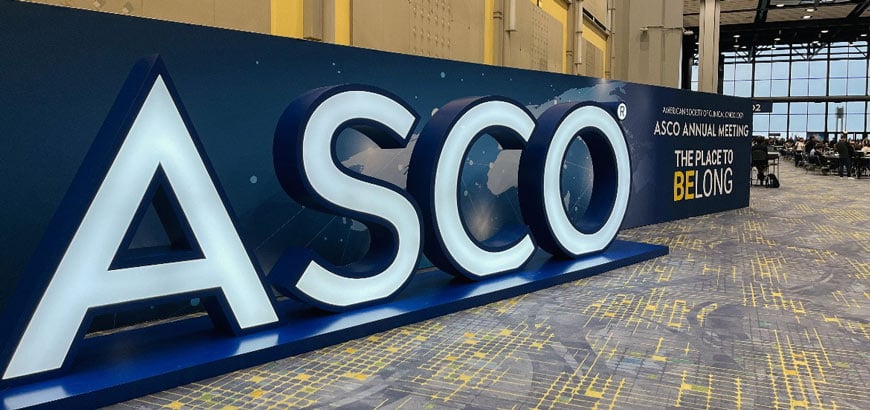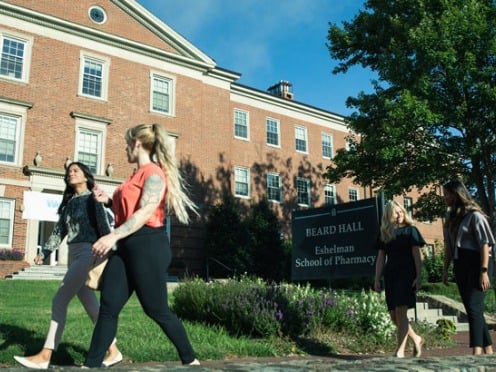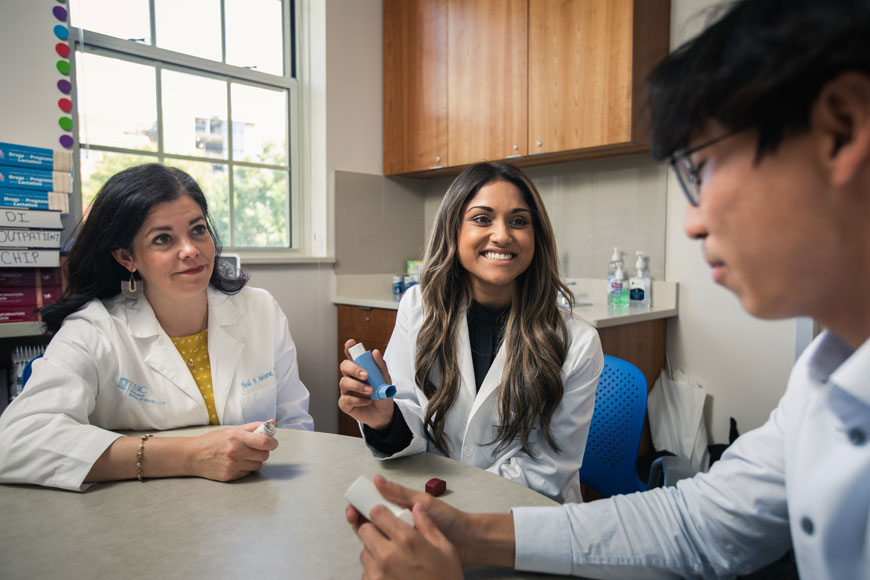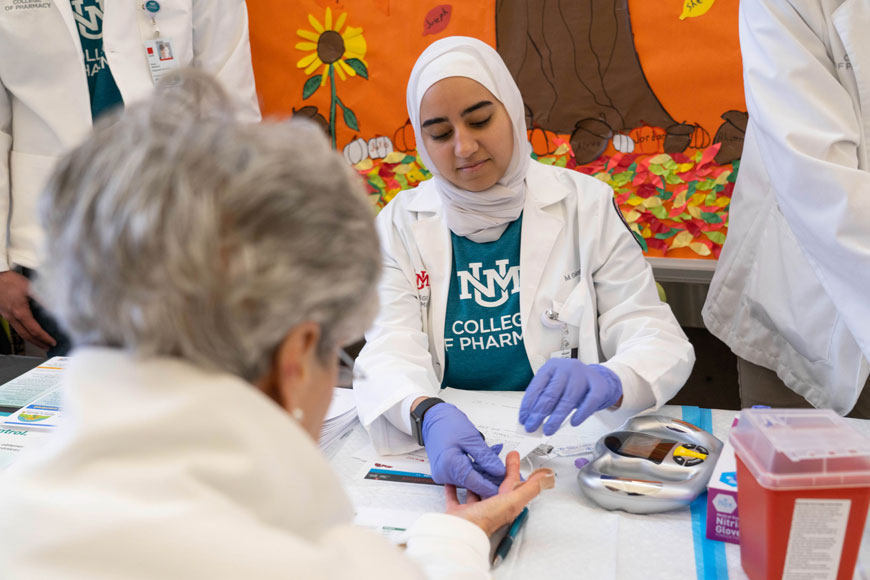
Top insights from the Endpoints at ASCO McKesson leadership panel
McKesson Foundation grants aim to increase the number of diverse pharmacists who will help meet the changing needs of patients.

Read time: 5 minutes
The U.S. is more diverse today than ever before – a fact that’s projected to continue for the next several decades. Yet the number of healthcare professionals from diverse backgrounds is not keeping pace, which may not be ideal for patients. In fact, patients report that having a healthcare provider of a similar race or ethnic background is important to them. That preference is relevant because studies show that patient-provider concordance can also improve patient health outcomes.
To address this challenge, the McKesson Foundation aims to play a role in diversifying the healthcare talent pipeline and is beginning with a critical profession: pharmacists.
To that end, the McKesson Foundation is donating more than $4 million in grants over the next five years to pharmacy schools at five U.S. universities: Hampton University, University of Michigan, University of Minnesota, University of North Carolina at Chapel Hill (UNC), and University of New Mexico. The grants aim to boost the number of pharmacy students from diverse backgrounds and enhance the cultural competency of all pharmacy students.
“We want to drive better patient care in medically underserved communities,” says Melissa Thompson, vice president of philanthropic giving and president of the McKesson Foundation. “That’s why the McKesson Foundation supports programs that will help increase access to care for diverse and rural populations, increase the number of pharmacists from traditionally underrepresented backgrounds entering the profession and give these pharmacists the tools they need to successfully serve underserved communities.”

In areas known as “medical deserts” – communities without access to local hospitals or physicians – pharmacists are often the closest healthcare providers. Additionally, these deserts tend to be located in racially and ethnically diverse communities and in rural areas.
With the worsening shortage of primary care doctors, it makes sense to consider the pharmacist as someone patients can rely on for their overall health. When you think of a pharmacist, you might picture someone standing behind a counter and dispensing medication. But modern pharmacists can potentially serve patients in many ways “beyond the pill.” Depending on a state’s established laws, pharmacists can provide health services, prescribe certain medications, order laboratory tests, help patients manage chronic diseases, and administer vaccines.
But the reality is that today’s pharmacy workforce is not representative of the overall diversity in the U.S. Most concerning is the modest representation among Black (7.6%), Hispanic (4.6%) and Indigenous (1%) pharmacists when compared to the demographics of the broader U.S. population.
That’s why these grants aim to help make pharmacy school programs more accessible to diverse students and set them up for success before they even apply to the school. To achieve this, some of our partner pharmacy schools will work with undergraduate institutions within their respective states to build a pipeline of diverse students.
For example, the University of Michigan is collaborating with tribal colleges. The University of New Mexico is working with other state schools to attract students from underserved areas. And the UNC Eshelman School of Pharmacy is partnering with Historically Black Colleges and Universities (HBCUs).
“Our faculty have many ideas on how we can best serve our state and beyond,” says Angela Kashuba, PharmD, dean of the UNC Eshelman School of Pharmacy. “However, many of these ideas require additional resources. Knowing that the McKesson Foundation’s aspirations align with our own allows us to dream big and execute on these.”
Once admitted, it’s essential to provide an environment that will retain diverse students. At the University of Minnesota, diversity, equity and inclusion initiatives will support underrepresented pharmacy students from the time they begin the program until they graduate as pharmacists. This includes an initiative that will connect Black students with mentors from the Minnesota Black Pharmacists Network, expanding in the future to include students from other underrepresented backgrounds.
“Students need role models with a shared experience who will inspire, motivate and commit to helping them realize their future as a pharmacist,” says Lynda Welage, PharmD, FCCP, dean of the University of Minnesota College of Pharmacy. “We want a diverse student body and workforce that meet the needs of our communities and tackle the toughest problems to make healthcare better for all.”
One of the many challenges the schools also hope to better address through these programs is medication adherence. Today, many factors beyond affordability can influence a patient’s non-adherence to their medication, such as language barriers or cultural beliefs.
“We’re moving beyond what we traditionally talk about in pharmacy to other aspects of people’s lives that can impact how effective a medication is for a patient,” explains Vicki Ellingrod, PharmD, FCCP, dean of the University of Michigan College of Pharmacy.
Providing students with hands-on experience working with diverse patients also helps them increase their cultural understanding and provides insights to challenges patients face that can affect their health. At Hampton University, students will participate in the RX@Home Telehealth Program, where they will provide medication therapy management and other clinical services by leveraging digital tools to reach underserved populations.

Another initiative at the University of New Mexico will enable students to participate in multiple clinical pharmacy rotations in rural areas of the state. Donald Godwin, PhD, dean at the University of New Mexico College of Pharmacy, explains that this expanded program will help students become more fully immersed in providing patient-centered support for the villages and small towns that are medically underserved.
“We want to inspire students to practice pharmacy in areas where they are really needed,” Dr. Godwin says. “That’s how we can increase access to healthcare.”
The Foundation believes that addressing these diversity gaps in the pharmacy workforce with tailored programs will have a significant impact on the pharmacy profession and, most importantly, on patient care.
“Ultimately, our goal is to make sure everyone can receive quality care where and when they need it,” Thompson says. “By supporting efforts to increase the number of diverse pharmacists, as well as healthcare services in medically underserved areas, we’re building platforms that will lead to better health outcomes among rural and vulnerable populations.”